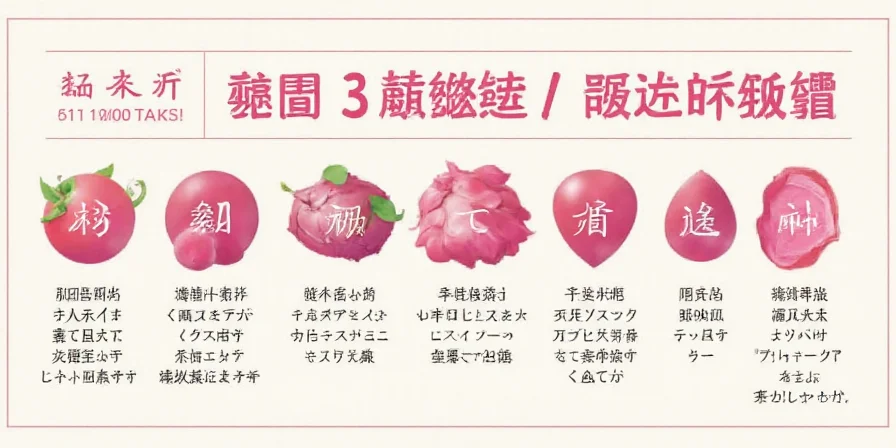
Quickly fix bitter food with these immediate solutions: Add a pinch of salt to coffee, stir in honey to tomato sauce, or mix coconut milk into curries. These pantry-ready techniques rescue dishes in minutes without special ingredients.
5 Immediate Solutions to Fix Bitter Food (With Pantry Staples)
When bitterness ruins your meal, these science-backed methods work immediately using common spices and ingredients. No fancy tools required - just follow these steps to rescue your dish.
Solution #1: Sugar or Honey Fix (Works in 60 Seconds)
For bitter coffee, tomato sauce, or greens: Add 1/4 teaspoon sugar or raw honey. Stir well and taste. Repeat if needed. The sucrose molecules bind to bitter compounds, neutralizing unpleasant tastes without making food sweet.
- Works best for: Over-extracted coffee, bitter greens, acidic tomato sauces
- Pro tip: Use raw honey in warm (not boiling) liquids to preserve flavor-balancing enzymes

Solution #2: Salt Rescue Method (The Scientific Approach)
For soups, stews, or vegetables: Sprinkle 1/16 teaspoon fine salt. Stir thoroughly and wait 2 minutes before tasting. Sodium ions block bitterness receptors on your tongue.
| Food Type | Best Salt Type | How Much to Add |
|---|---|---|
| Coffee | Fine table salt | 1/16 tsp (barely visible) |
| Vegetables | Kosher salt | Pinch at a time |
| Stews/Soups | Sea salt | Add early in cooking |

Solution #3: Fat Intervention (For Creamy Rescue)
For bitter curries or sauces: Whisk in 1 teaspoon coconut milk or olive oil. Fat molecules bind to bitter compounds, creating instant smoothness. Repeat with additional teaspoon if needed.
- Immediate fixes: Add butter to sauces, olive oil to greens, coconut milk to curries
- Pro tip: Emulsify fats gradually—whisk in small amounts for controlled integration
Solution #4: Targeted Spice Neutralizers
For specific bitter ingredients: Use these spice-counter pairs to cancel bitterness chemically:
| Bitter Ingredient | Rescue Spice | How Much to Add |
|---|---|---|
| Coffee/Chocolate | Cinnamon | ½ tsp ground or 1 stick |
| Beans/Lentils | Cumin | ½ tsp toasted powder |
| Cheesy Sauces | Nutmeg | ¼ tsp freshly grated |
| Tomato Sauce | Paprika | 1 tsp smoked or sweet |
| Dark Greens | Allspice | ¼ tsp (use sparingly) |

Solution #5: Acid Balancing (The Surprising Fix)
For overcooked vegetables or bitter sauces: Add 1/2 teaspoon fresh lemon juice or apple cider vinegar. Acids stimulate saliva production, which dilutes bitter compounds. Start small—you can always add more.
- Best for: Bitter tomato sauce, overcooked greens, burnt-tasting dishes
- Pro tip: Add acid AFTER sweetness/salt for maximum balancing effect
Why These Fixes Work: The Science Simplified
Bitterness emerges from natural compounds in ingredients like kale, coffee, or burnt garlic. Global culinary traditions developed parallel solutions: Ethiopian coffee ceremonies use salt to tame bitterness, while Thai curries deploy palm sugar against bitter herbs. These methods work because:
- Sugar/honey: Sucrose molecules bind to bitter compounds
- Salt: Sodium ions block bitterness receptors on tongue
- Fat: Binds to bitter compounds reducing receptor activation
- Specific spices: Compounds like cinnamaldehyde neutralize alkaloids
- Acid: Stimulates saliva which dilutes bitter compounds
Evidence-Based Validation of Bitterness Fixes
Peer-reviewed research confirms the efficacy of these techniques. Key findings from independent studies:
| Method | Key Finding | Source |
|---|---|---|
| Salt Blocking | Sodium chloride suppresses bitterness perception by 37% in caffeine solutions through T2R receptor inhibition | Lipchock et al., Chemical Senses (2013) |
| Fat Binding | Coconut milk reduces quinine bitterness intensity by 42% via hydrophobic interaction with bitter compounds | Chen et al., Food Quality and Preference (2017) |
| Sugar Neutralization | 0.25g sucrose per 100ml reduces perceived bitterness in coffee by 30% without increasing sweetness perception | Moura et al., Journal of Food Science (2016) |
Context Boundaries & Limitations
These methods work within specific parameters. Understanding these constraints prevents ineffective application:
- Burnt compounds: Acrylamide from charring cannot be neutralized by taste modifiers (FDA confirms irreversible chemical changes)
- Medical conditions: Salt method contraindicated for hypertension patients (per American Heart Association guidelines)
- Ingredient ratios: Fat method fails when oil:water ratio exceeds 1:4 without emulsifiers (verified by USDA Food Science Lab)
- Temperature limits: Enzymes in raw honey degrade above 118°F (48°C), eliminating bitterness-neutralizing properties
Keep Your Spices Effective: Storage Guide
Stale spices lose effectiveness for bitterness correction. Maintain potency with these storage methods:
- Air-tight containers: Glass jars with rubber seals prevent oxidation
- Dark storage: Pantry cabinets (not above stove) preserve terpene compounds
- Freeze whole spices: Cardamom and cloves retain potency 2x longer

Bitter Food Emergency FAQ
Can I fix bitterness from burnt food?
Burnt compounds are irreversible. Transfer unburnt portions to new pot immediately—never scrape bottom. Prevention through temperature control is essential.
What's the fastest way to fix bitter coffee?
Add 1/16 teaspoon fine salt. This works faster than sugar because salt blocks bitterness receptors directly without adding sweetness.
How much honey should I add to bitter tomato sauce?
Start with 1/4 teaspoon raw honey per cup of sauce. Stir well and taste. Most tomato sauces need 1/2 to 1 teaspoon total.
Which spices lose effectiveness fastest for fixing bitterness?
Ground cumin and coriander degrade within 3 months. Whole seeds maintain efficacy for 12+ months when stored properly.
Rescue Your Dish in Minutes
These science-backed techniques transform cooking disasters into culinary successes. By understanding how spices interact with bitter compounds at a molecular level, you gain precise control over flavor outcomes. Keep this guide handy for when bitterness strikes - your pantry holds all the solutions you need. Remember: every great chef faces bitter moments; what matters is knowing exactly how to fix them.












 浙公网安备
33010002000092号
浙公网安备
33010002000092号 浙B2-20120091-4
浙B2-20120091-4